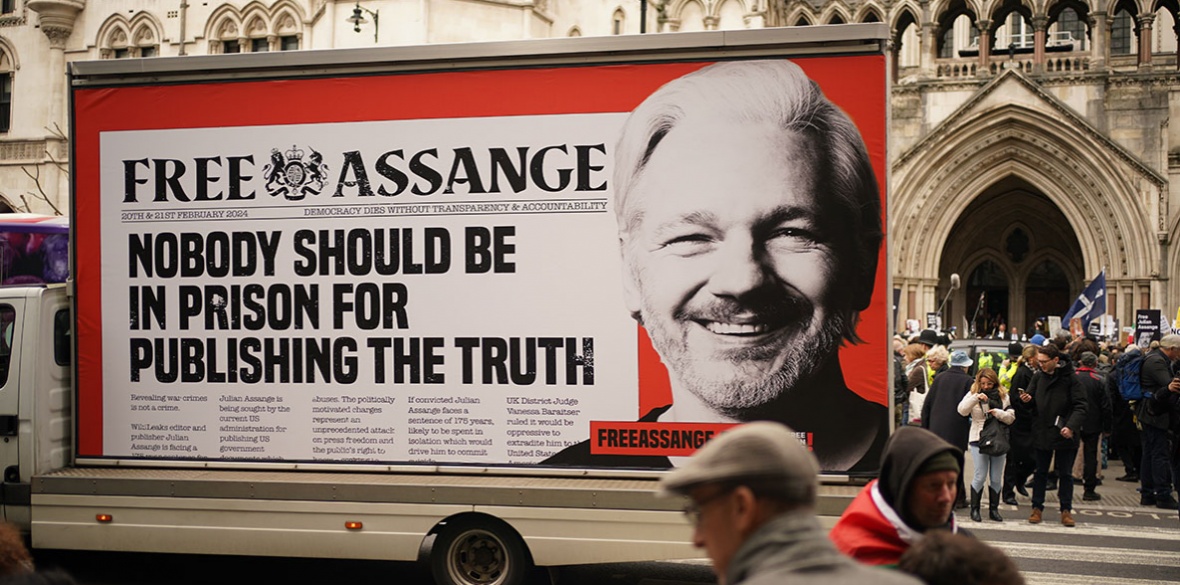This is the last article you can read this month
You can read more article this month
You can read more articles this month
Sorry your limit is up for this month
Reset on:
Please help support the Morning Star by subscribing here
THE United States’ bid to extradite Julian Assange came under unusual pressure from one of the judges hearing the case today.
Clair Dobbin KC, representing the US, conceded to Judge Victor Johnson that she had no evidence that the Wikileaks founder would be protected as US citizens are by the American constitution.
She also admitted that he could have been prosecuted under the Official Secrets Act for similar offences in Britain and accepted that Mr Assange was not the original publisher of the leaks.
This was the second day of the hearing at which Mr Assange’s legal team argued that the case merits a full appeal hearing.
If the decision goes against the imprisoned journalist, then US marshalls could arrive within days to transport the Wikileaks founder to Washington.
Judgement in his favour would result in a full appeal hearing later in the year.
On the first day on Tuesday, Judges Johnson and Sharp heard the case from Mr Assange’s legal team.
Barristers arguing the US case made their reply on the second and final day today.
Mr Assange was once again too unwell to attend court, even by video link.
Ms Dobbin’s case was largely a reiteration of the one that she successfully argued in 2022.
“Wikileaks publishes documents that are stolen or have otherwise been obtained illegally, Mr Assange colluded with a member of the US military to obtain such documents,” she told the court.
She argued that a “respectable journalist” would not have published unredacted information, would not have colluded in the use of a fake password to obtain information, nor engaged in hacking.
Judge Johnson probed: “But [Mr Assange] was not the first to publish this material and the others have not been prosecuted.”
Ms Dobbin conceded but countered that the information would not have been available to the site where it was first published, Cryptome, had Wikileaks not obtained the leak.
She told the court that various “responsible media outlets” such as the New York Times had redacted the material, unlike Wikileaks, whose publication she said was “without precedent.”
Ms Dobbins also argued against comments made by Mr Assange’s lawyers on Tuesday that there is no political exemption from extradition on the grounds that it was never enacted into law, Mr Assange’s crimes are not political and the disclosures caused great harm.
“People had to flee their homes,” she said. “Individuals subsequently disappeared, although it can’t be proved because they were outed.”
She continued to suggest that Wikileaks was a favourite of Osama Bin Laden and governments in Iran, China and Syria.
Much of the afternoon was taken up with technical arguments about the Secretary of State’s granting of extradition.
The hearing closed with a strong closing statement by Mark Summers KC for Mr Assange.
“You can’t ignore what we all now know, that [former US president Donald Trump] was plotting to kill [Mr Assange],” he said.
He argued that it was impossible to treat the application as if it was made in good faith, “now that we know that that the US plotted to kill Mr Assange.”
The judges retired without making a decision. It is expected in a few weeks.
A lively group of protesters defied the rain outside the court to voice their opposition to the prosecution.









